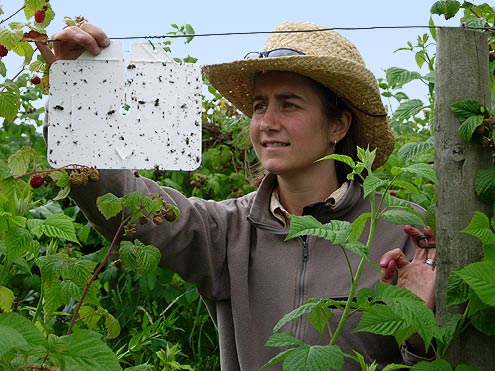
Goal: To broaden the adoption of IPM practices nationwide, thereby reducing pesticide risks and promoting a healthy environment.
Integrated pest management (IPM) benefits the environment by preserving natural enemies of pests, delaying pesticide resistance and reducing ecological and human health risks by reducing pesticide use. Despite such benefits, IPM adoption in the US has been far below potential. One reason is the failure of the marketplace to demand IPM-produced goods from producers.
Recently, several regional programs have increased IPM adoption locally by identifying products as certified as IPM-grown, and by raising consumer awareness.
The IPM Institute plans to increase IPM adoption nationwide through a new mechanism that will (1) certify food products with a single, credible, national IPM mark that will be regularly updated; (2) coordinate development of rigorous, science-based IPM production criteria for each region with land grant university IPM specialists, extension agents, grower groups and others; (3) audit operations for compliance; (4) educate consumers; and (5) provide technical assistance to growers, food processors, wholesalers and retailers.
The IPM Institute plans to work closely with existing programs and interests (e.g., Cornell University’s licensed IPM label program; the Institute for Agriculture and Trade Policy; World Wildlife Fund; American Farmland Trust; Massachusetts Extension Partners with Nature; Mothers and Others; The Food Alliance) to reduce the confusion of competing, regional labels.
Client: The Integrated Pest Management Institute of North America
TerrAqua’s role: Help develop the program and its funding.